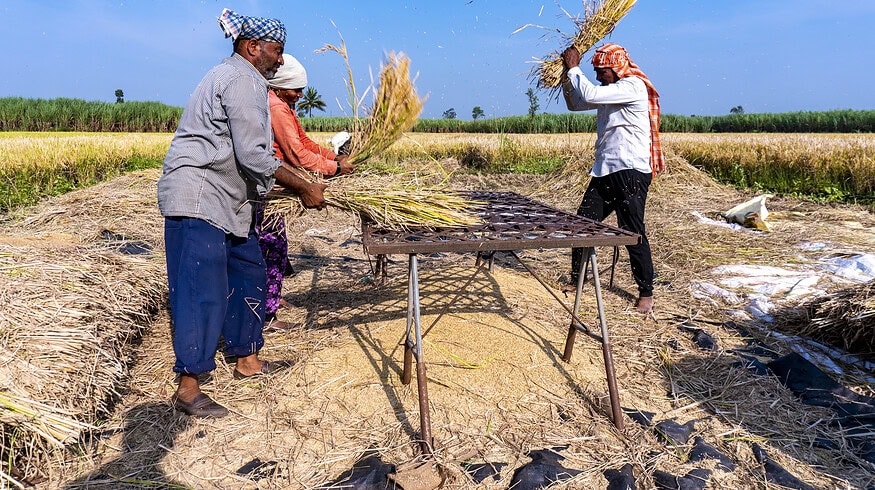Escalating fertilizer costs trouble Pakistani farmers in Rabi season

During the critical wheat sowing season of Rabi, Pakistani farmers are grappling with inflated prices of urea and phosphatic fertilizers, driven by a mix of shortage, hoarding, and black marketing. The issue has sparked widespread concern and protests among growers, who report difficulty in acquiring urea bags at reasonable prices. The cost of urea has surged to 5,000 Pakistani rupees per bag, significantly higher than the manufacturing price of 3,400 rupees. Similarly, DAP (Diammonium Phosphate) and NP (Nitrophos) fertilizers are being sold at 15,000 and 8,500 rupees, respectively, far above their original prices of 10,000 and 4,500 rupees.
Farmers have urgently called on the government to intervene, demanding a crackdown on dealers, the availability of affordable fertilizers, and measures to prevent alleged smuggling activities to Afghanistan.
Industry experts predict a resolution to the crisis with the impending arrival of imported urea and DAP fertilizers by both the government and private sectors. However, there is concern over the lack of a government control mechanism on fertilizer pricing, despite substantial gas subsidies provided to manufacturers.
Atif Ikram Sheikh, a prominent businessman, highlighted the artificial scarcity of urea in the market, terming it a significant threat to farmers, agriculture, and industrial output. He called for punitive measures against those responsible for exacerbating the food security crisis in the country. Sheikh pointed out the recurring issue of urea vanishing from the market during the wheat cultivation season, forcing farmers to resort to the black market at exorbitant prices.
Echoing similar concerns, Dr. Shahid Rasheed Butt, former President of the Islamabad Chamber of Commerce and Industry (ICCI), and Mian Zahid Hussain, Chairman of National Business Group Pakistan, stressed the urgent need for government action against the fertilizer mafia. They emphasized the criticality of safeguarding millions of farmers’ livelihoods and the country’s food security.
In response to the crisis, a meeting in Punjab chaired by Deputy Commissioner Zaheer Anwar Jappa reviewed measures related to fertilizer demand, supply, and fixed-rate sales. Key officials, including Additional Deputy Commissioner Revenue Muhammad Sarwar, Deputy Director Agriculture Hafiz Muhammad Shafiq, and Assistant Director Agriculture Dr. Muhammad Ashfaq, attended the meeting. The Deputy Commissioner directed that fertilizer supply must align with the demand to mitigate the crisis effectively.
Enjoyed this story?
Every Monday, our subscribers get their hands on a digest of the most trending agriculture news. You can join them too!
















Discussion0 comments